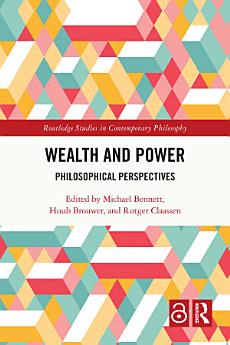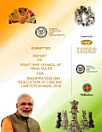Wealth and Power: Philosophical Perspectives
À propos de cet e-book
Theories of democracy and property have often ignored the ways in which the rich attempt to convert their wealth into political power, implicitly assuming that politics is isolated from economic forces. This book brings the moral and political links between wealth and power into clear focus. The chapters are divided into three thematic sections. Part I analyses wealth and politics from the perspective of various political traditions, such as liberalism, republicanism, anarchism, and Marxism. Part II addresses the economic sphere, and looks at the political influence of corporations, philanthropists, and commons-based organisations. Finally, Part III turns to the political sphere and looks at the role of political parties and constitutions, and phenomena such as corruption and lobbying.
Wealth and Power: Philosophical Perspectives will be of interest to scholars and advanced students working in political philosophy, political science, economics, and law.
À propos de l'auteur
Michael Bennett is a postdoctoral researcher at Utrecht University, where he is working on how to render business corporations more politically accountable. All of his academic work has been related in one way or another to the relationship between democracy and capitalism. He wrote his PhD thesis in 2017 on 'Democracy and its relationship with the market: Impartial instrumentalism in politics and constitutional design', and aspects of this research have been published in the journal Critical Review.
Huub Brouwer is a postdoctoral researcher at Utrecht University, where he is working on whether political institutions can still function legitimately in the presence of unjust individual wealth distributions. With a background in economics, he works at the intersection of economics and political philosophy, and was the editor of the Erasmus Journal of Philosophy and Economics in 2018–2019. He obtained his PhD, on desert and justice, from Tilburg University in January 2020, and has published in journals such as the Journal of Moral Philosophy, Philosophical Studies and Proceedings of the Aristotelian Society. He has been a visiting researcher at Oxford University, Pompeu Fabra University, and Yale University.
Rutger Claassen is Professor of Political Philosophy and Economic Ethics at the Department of Philosophy and Religious Studies of Utrecht University. Rutger is an internationally respected research leader in this field. He is currently the principal investigator of the research project 'Private Property & Political Power in Liberal-Democratic Societies', and from summer 2020, he will be the principal investigator of the project 'The Business Corporation as a Political Actor, funded by the European Research Council' (ERC-Consolidator Grant). He has published extensively on the moral value of economic institutions such as markets, property, and corporations in journals such as Economics & Philosophy, Inquiry, Law & Philosophy, the Journal of Social Philosophy, and Politics, Philosophy & Economics. Rutger is the author of Capabilities in a Just Society: A Theory of Navigational Agency (2018). He is the founding Program Director of the BA-program in Philosophy, Politics & Economics (PPE) at Utrecht University.







